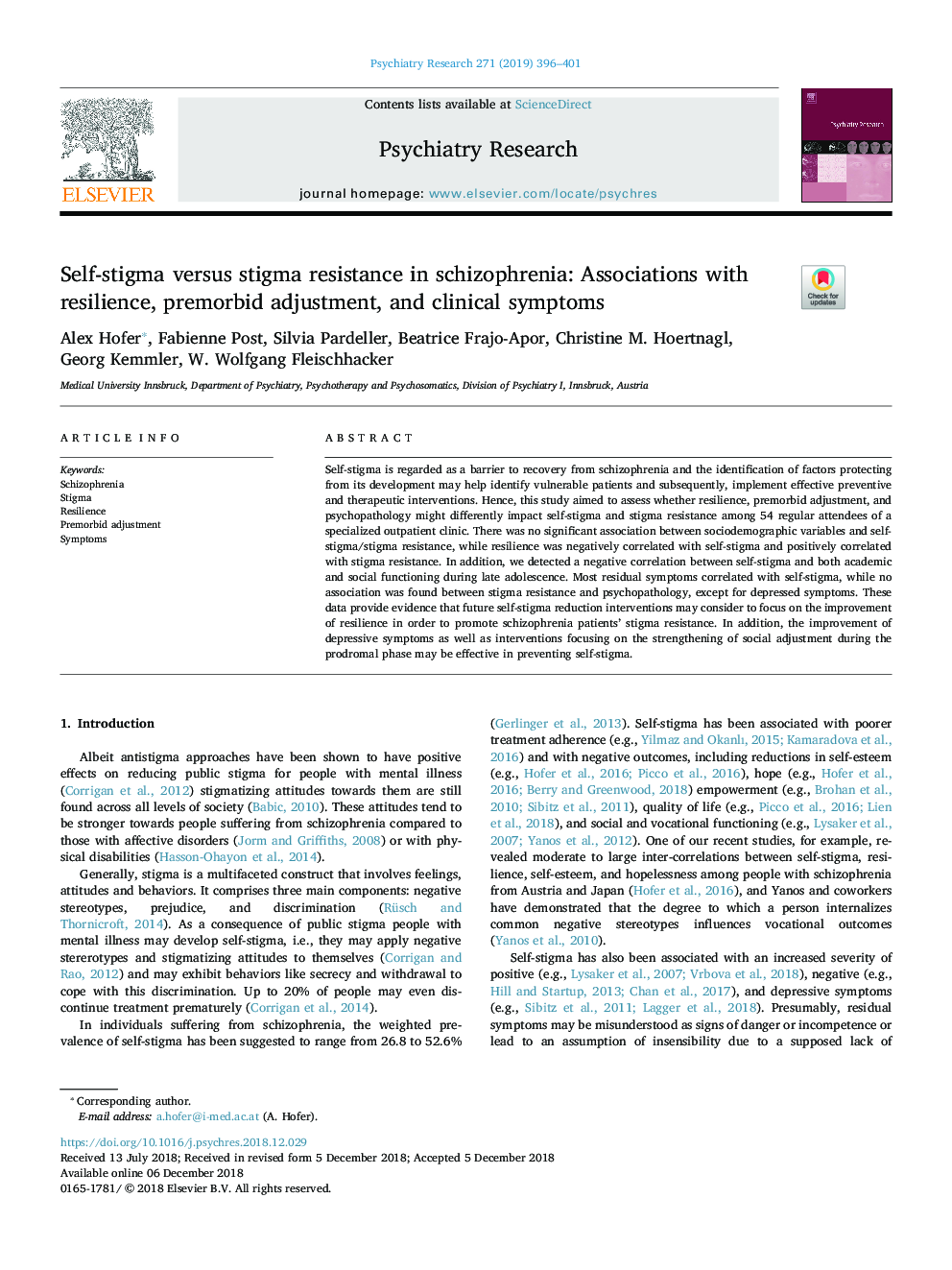| Article ID | Journal | Published Year | Pages | File Type |
|---|---|---|---|---|
| 13425286 | Psychiatry Research | 2019 | 6 Pages |
Abstract
Self-stigma is regarded as a barrier to recovery from schizophrenia and the identification of factors protecting from its development may help identify vulnerable patients and subsequently, implement effective preventive and therapeutic interventions. Hence, this study aimed to assess whether resilience, premorbid adjustment, and psychopathology might differently impact self-stigma and stigma resistance among 54 regular attendees of a specialized outpatient clinic. There was no significant association between sociodemographic variables and self-stigma/stigma resistance, while resilience was negatively correlated with self-stigma and positively correlated with stigma resistance. In addition, we detected a negative correlation between self-stigma and both academic and social functioning during late adolescence. Most residual symptoms correlated with self-stigma, while no association was found between stigma resistance and psychopathology, except for depressed symptoms. These data provide evidence that future self-stigma reduction interventions may consider to focus on the improvement of resilience in order to promote schizophrenia patients' stigma resistance. In addition, the improvement of depressive symptoms as well as interventions focusing on the strengthening of social adjustment during the prodromal phase may be effective in preventing self-stigma.
Related Topics
Life Sciences
Neuroscience
Biological Psychiatry
Authors
Alex Hofer, Fabienne Post, Silvia Pardeller, Beatrice Frajo-Apor, Christine M. Hoertnagl, Georg Kemmler, W. Wolfgang Fleischhacker,
